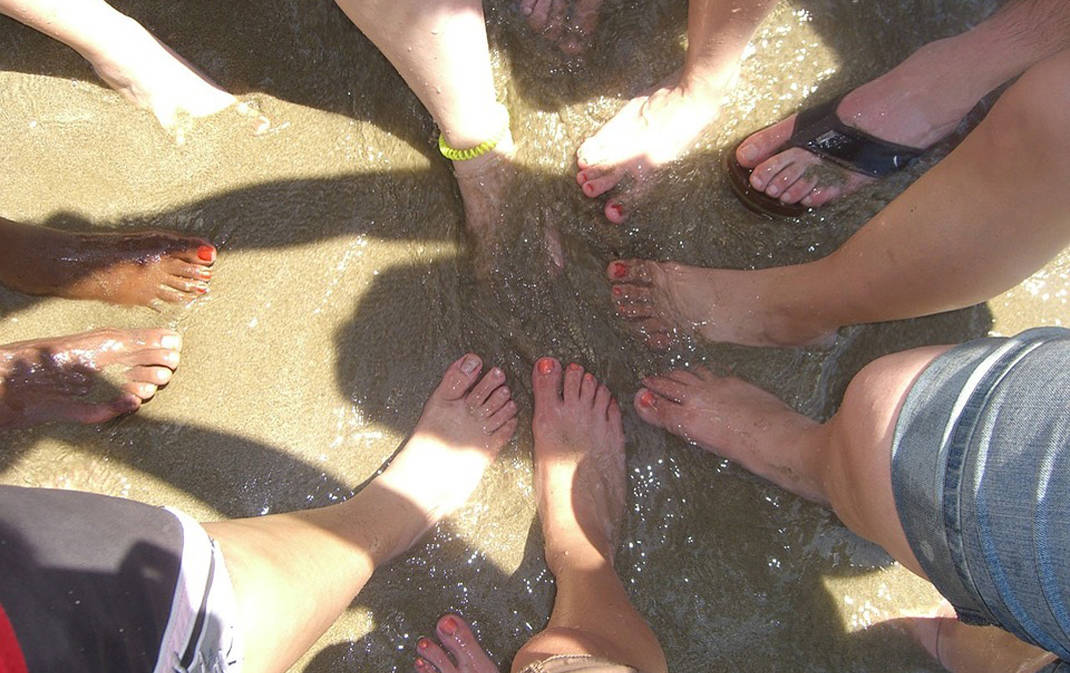 By Russ Cashin
By Russ Cashin
I grew up in the era of the Cold War, the Vietnam War, the civil rights movement, and the space race. As a child, I experienced and was deeply affected by the assassinations of President John F. Kennedy, his brother Robert Kennedy, and Martin Luther King Jr., tragic events that I still vividly remember to this day.
The first 10 years of my childhood were spent during the decade of the ‘60s. Even after our great accomplishment of landing on the moon in 1969, the civil, social, and political unrest from that decade continued on unabated well into the ‘70s.
It seems as if there has always been prejudice and bigotry in American society, something we are hearing more and more about in current times. It can feel disheartening and even frightening, but I remain steadfastly optimistic that we can transcend prejudice.
I was born into a conservative, religious home. We were the typical white middle-class family of the era. Being raised in Salt Lake City in an overwhelmingly Mormon community did not afford me the opportunity to personally experience cultures other than my own. In fact, throughout most of the ‘60s, I don’t remember anyone in our neighborhood that wasn’t from a white, middle-class family like mine, and most of my neighbors were members of our church. While I was aware that there were a few kids in school who held other Christian beliefs (there were no people of color or religions other than Christianity), I stuck to “my own kind” as I was encouraged to do, so I did not experience human diversity of any kind.
Sometime in the late ‘60s, a black family moved into our neighborhood a few houses down from us. I remember being told by my mother (who was otherwise a very loving and kind woman) during Halloween that we weren’t allowed to go trick or treating at their home because “we don’t know what kind of people they are.”
It wasn’t until I was 22 that I was finally had the opportunity to spend time with another person who wasn’t white. At that time, I was married, struggling financially, and desperate to find work to support my family. I had decided to leave engineering school to find a job and enlist in the Army.
I was sent overnight to get the Army medical exam a few hours away. When I arrived at the motel and entered the room, I was greeted by a young black man who was to be my roommate. It felt like my stomach immediately went up into my throat and I almost turned around to leave. Just as that thought of “fleeing” out of fear reached my consciousness, a kind voice said “hello.” The young man then introduced himself, and we began to talk. He invited me to spend the evening with him and his friends, to which I said “yes.” I spent that evening as the only white person in the entire crowd of six or seven young people. While a little discomfort still remained as I was the “minority” in the group, I had a great time, and my view that they were “other” began to change.
Since that first experience of human diversity, I have thankfully had many others. A few years afterward, I worked for a California tech company and was mentored in that job by another kind, professional man of color. Later, I was hired by an Israeli company, spent time in Israel, met refugees from Romania, and worked closely with expatriates from Israel.
After I left the religion of my youth, I moved to Northern California, eventually immersed myself in the Jewish culture, and worshiped next to many from all walks of life. It was at that time that I made the conscious decision to deeply examine and understand my fear of “others” first instilled in me by my mother’s words. That self-examination was personally and spiritually transformational and opened up a world of love, compassion, and acceptance for me. Just recently, as a member of the St. George Interfaith Council, I attended a dinner with our wonderful Muslim community and attended their Friday Jumma prayer at their gracious invitation.
I am humbled and very grateful to say that I no longer fear people who seem different than me because of their beliefs or outward appearance, no matter what form that may take.
As I’ve moved more fully into the work of a spiritual leader and social activist, I have come to realize that in order to begin to bridge the seeming “gap” between diverse groups of people, we first need to learn to let go of our fear. We need to be willing to step outside of our familiar surroundings and to become comfortable with being uncomfortable. We need to experience people of different races, cultures, religions, and beliefs, for only experience can transform prejudice. Only then can we truly begin to have compassion, understanding, and acceptance for all of our human brothers and sisters.
The next time you notice someone who is not like you, take notice and see if you can find the courage to offer a kind “hello.” If the opportunity presents itself for you to have a longer conversation, take the time to listen to them. Ask about their family, work, or views on life, and just listen. Even if you don’t agree or simply don’t understand, that’s okay. Your kindness and openness may brighten their day and very likely yours as well and will almost certainly contribute to the transformation and transcendence of any personal prejudices that either of you may have. That is what our world needs now more than ever. Blessings.



